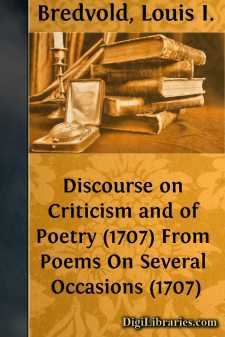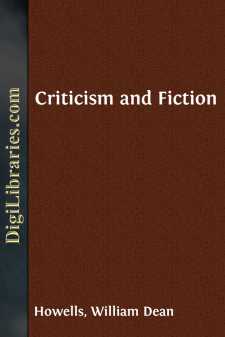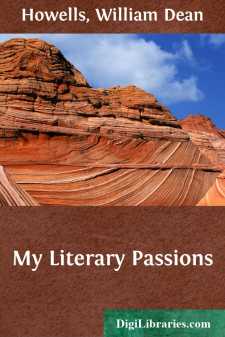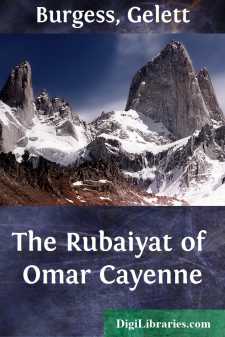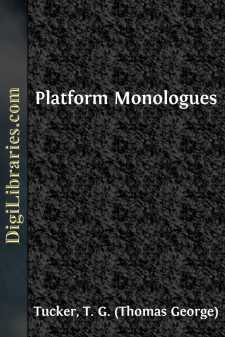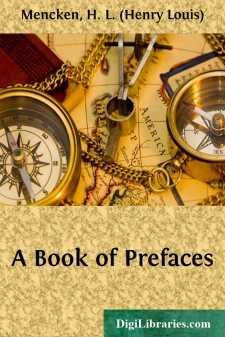Literary Criticism
- American 18
- Ancient and Classical 3
- Asian 1
- Australian & Oceanian 1
- Books & Reading 8
- Caribbean & Latin American 2
- Drama 2
- English, Irish, Scottish, Welsh 49
- European 7
- General
- Horror 1
- Humor 2
- Jewish 2
- Medieval 2
- Middle Eastern 3
- Poetry 7
- Renaissance 6
- Russian & Former Soviet Union 1
- Shakespeare 27
General Books
Sort by:
Introduction What little is known of the life of Samuel Cobb (1675-1713) may be found in the brief article in the Dictionary of National Biography by W.P. Courtney. He was born in London, and educated at Christ's Hospital and at Trinity College, Cambridge, where he obtained the degrees of B.A., 1698, and M.A., 1702. He was appointed "under grammar master" at Christ's Hospital in 1702...
more...
The question of a final criterion for the appreciation of art is one that perpetually recurs to those interested in any sort of aesthetic endeavor. Mr. John Addington Symonds, in a chapter of 'The Renaissance in Italy' treating of the Bolognese school of painting, which once had so great cry, and was vaunted the supreme exemplar of the grand style, but which he now believes fallen into...
more...
BIBLIOGRAPHICAL The papers collected here under the name of 'My Literary Passions' were printed serially in a periodical of such vast circulation that they might well have been supposed to have found there all the acceptance that could be reasonably hoped for them. Nevertheless, they were reissued in a volume the year after they first appeared, in 1895, and they had a pleasing share of such...
more...
by:
Gelett Burgess
OMAR CAYENNE IWake! For the Hack can scatter into flightShakespere and Dante in a single Night!The Penny-a-liner is Abroad, and strikesOur Modern Literature with blithering Blight.Before Historical Romances died,Methought a Voice from Art's Olympus cried,"When all Dumas and Scott is still for Sale,Why nod o'er drowsy Tales, by Tyros tried?" IIIA cock-sure Crew with Names ne'er...
more...
PREFACE. The following treatise was awarded the Harness Prize at Cambridge in 1904. I have, however, revised it since then, and in some matters considerably enlarged it. A list of the chief authorities to whom I am indebted will be found at the end of the book, but it is fitting that I should here make particular mention of my obligations to the exhaustive work of Mr Bond. Not only have his labours of...
more...
The Supreme Literary Gift When we have been reading some transcendent passage in one of the world's masterpieces we experience that mental sensation which Longinus declares to be the test of true sublimity, to wit, our mind "undergoes a kind of proud elation and delight, as if it had itself begotten the thing we read." We are disposed by such literature very much as we are disposed by the...
more...
JOSEPH CONRAD "Under all his stories there ebbs and flows a kind of tempered melancholy, a sense of seeking and not finding...." I take the words from a little book on Joseph Conrad by Wilson Follett, privately printed, and now, I believe, out of print. They define both the mood of the stories as works of art and their burden and direction as criticisms of life. Like Dreiser, Conrad is forever...
more...


